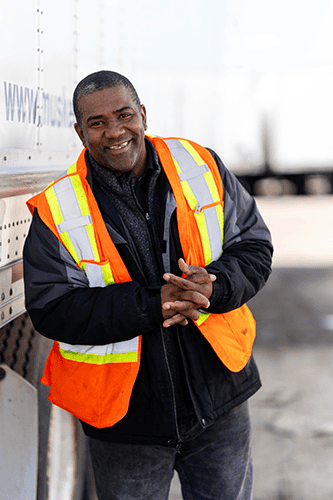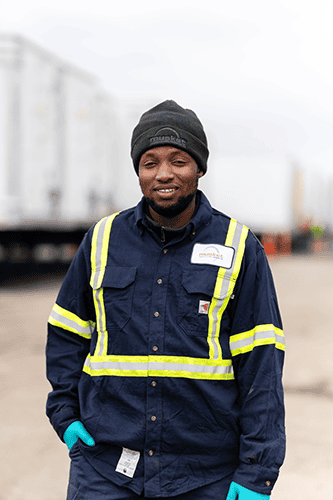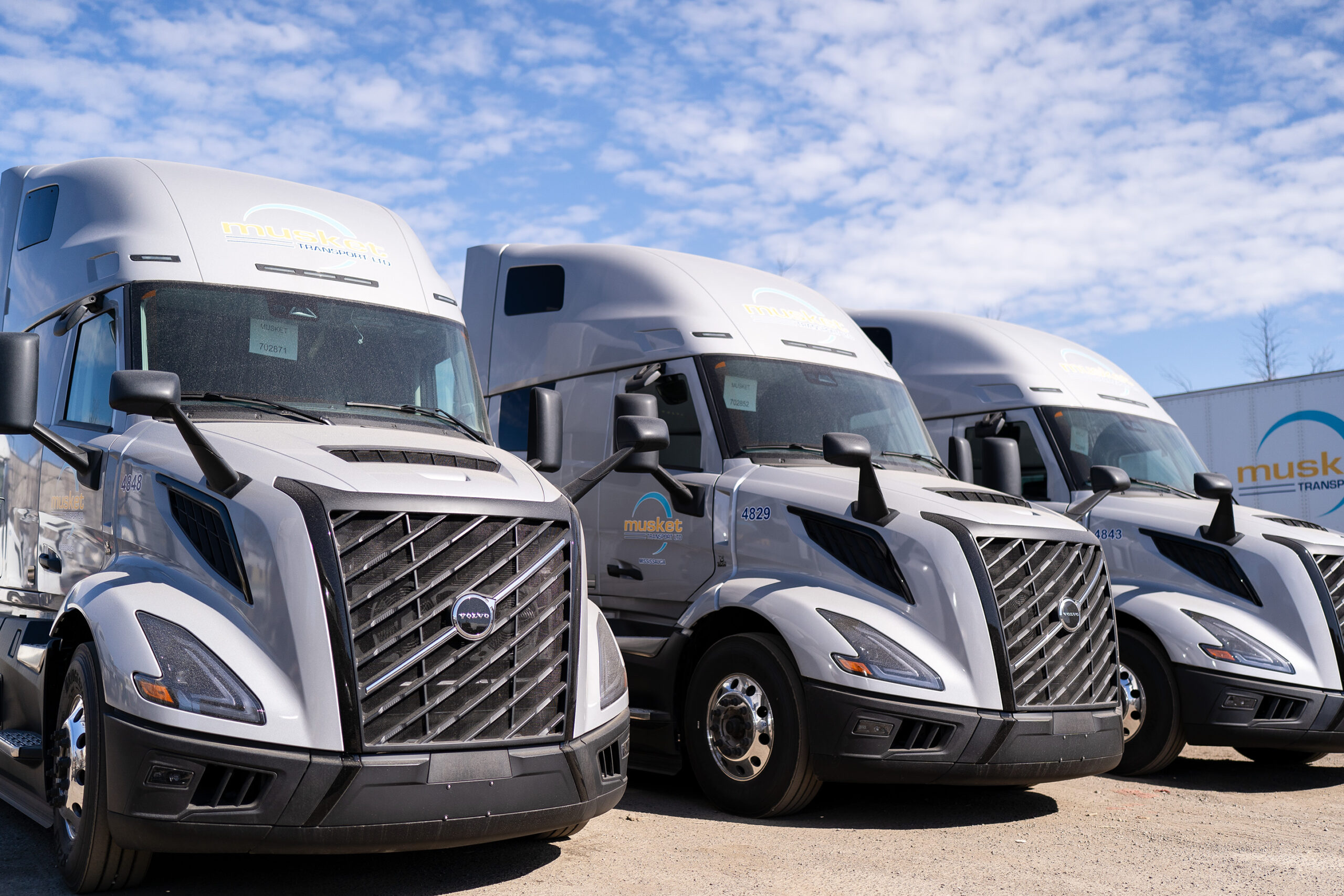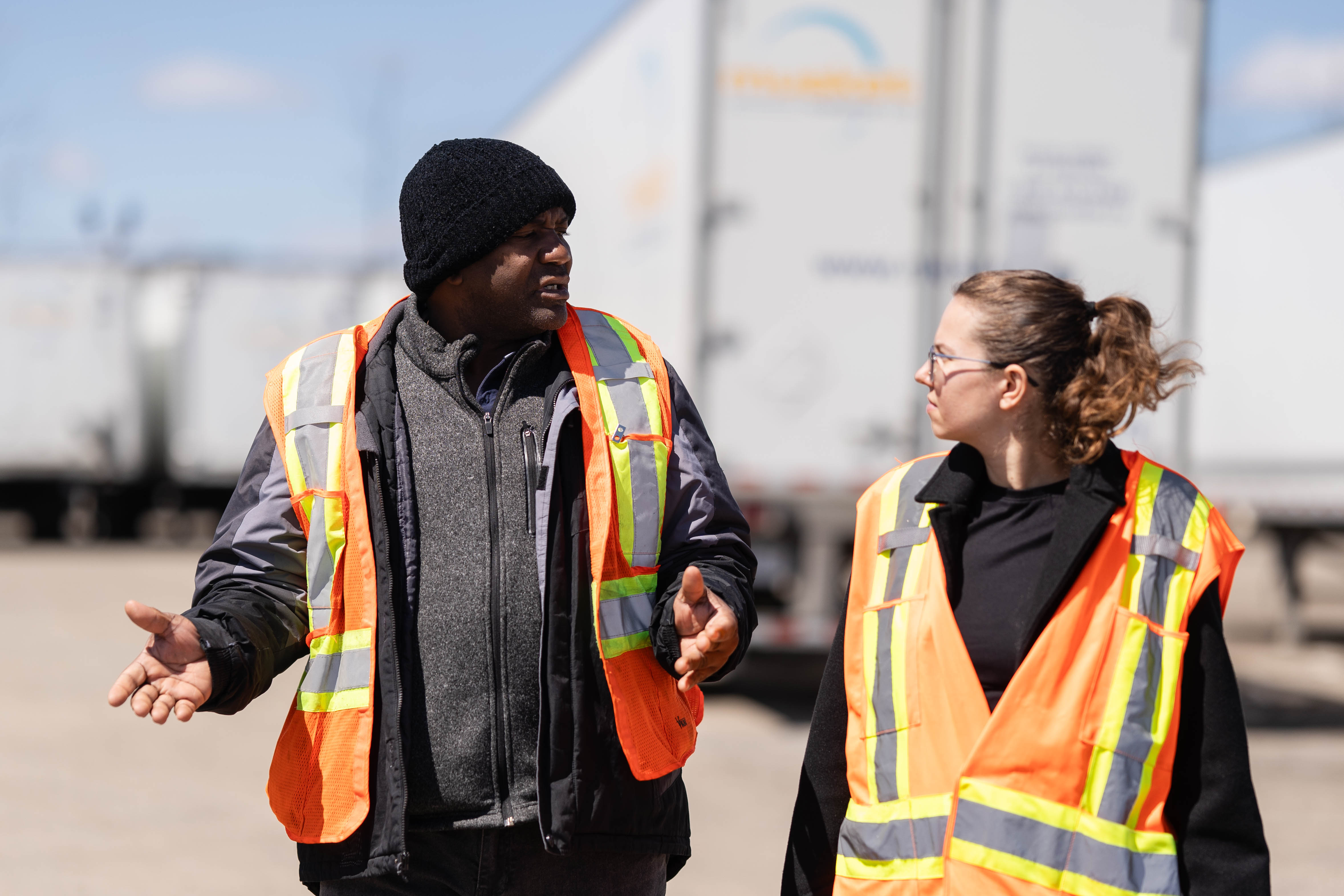Global Experience, Local Impact
At Musket Transport, our workforce reflects the diverse, global nature of the industry we serve. In Part One of this series, we introduced you to drivers from Jordan, Kenya, and the UK, and how their international expertise enriches our team.
Now, in Part Two, we meet two more remarkable individuals whose stories exemplify a powerful message for immigrants and refugees: your experience matters! Whether it’s behind the wheel or under the hood, what you’ve done abroad has a place here—sometimes it just needs a little translation.
Meet Dwight: A Jamaican Driver with the Heart of a Road Warrior
For Dwight, currently a student at CHET, working towards becoming a trucker isn’t just for a profession—it’s personal. Born and raised in Jamaica, his path into driving began in the most organic way possible: immersion. As a dispatcher, he absorbed everything about trucks, routes, and deliveries. When the time came, he simply started driving—no formal lessons, no instructors. Just instinct, need, and raw talent. “It was like an inborn thing. My father was a truck driver too,” Dwight reflects. “I didn’t go to school for it. I just got in and did it.”
Driving in Jamaica vs. Driving in Canada
The cultural and operational differences between Jamaican and Canadian trucking are, in Dwight’s words, “a million miles apart.”
 In Jamaica, learning was informal—drivers picked up skills on the job, and inspections were virtually unheard of. “We didn’t know anything about air brakes or clutching,” he says. “We just drove.” In Canada, formal training is essential. “Here you have a one-on-one teacher. You learn inspections, terminology—things we never had to think about before.”
In Jamaica, learning was informal—drivers picked up skills on the job, and inspections were virtually unheard of. “We didn’t know anything about air brakes or clutching,” he says. “We just drove.” In Canada, formal training is essential. “Here you have a one-on-one teacher. You learn inspections, terminology—things we never had to think about before.”
But Dwight is not bitter about the change—he’s grateful. “I appreciate the hours of service here. You get time to reset your body and mind. Back home, it was drive until you drop.” He also notes the contrast in perception of the job. In Jamaica, truck drivers are celebrated—parties are thrown in their honor, and the profession is deeply respected. “Since I’ve been here, I’ve never heard of a truckers’ party,” he laughs. “Back home, it’s a community. A fraternity.”
Yet, what stands out most about Dwight’s story is mindset. “If your mind’s not in your job, you’ll waste time,” he says. “Come out early, be ready, be respectful of the work. It’s all about how you think.”
Meet Vince: From Nairobi Garages to Canadian Tool Bays
 Vince’s journey to Musket began at Youth Without Shelter (YWS), where a speaking engagement led to an unexpected connection. As Musket representatives spoke about opportunities in the transportation industry, Vince spoke up—he was a trained mechanic from Kenya.
Vince’s journey to Musket began at Youth Without Shelter (YWS), where a speaking engagement led to an unexpected connection. As Musket representatives spoke about opportunities in the transportation industry, Vince spoke up—he was a trained mechanic from Kenya.
With support from Youth Without Shelter and encouragement from our CHET and Musket leaders, Vince joined the Musket garage—and hasn’t looked back since. He completed a three-year automotive program in Kenya, noting, “It’s similar to here. I worked on trucks and trailers, just like I do now.” While Vince acknowledges that “Canada has better tools—it makes the job easier,” he also points out that the country is much stricter when it comes to safety regulations: “You have to follow the rules to the letter.” His greatest hurdle has been the language barrier. “The names for parts are different. Here, I have to be much more precise,” he explains.
Still, Vince sees his Kenyan experience as an advantage, not a barrier. “I know other ways of doing things,” he says. “Sometimes they take longer, but I can always get the job done.”
A Message to Newcomers: You’re More Prepared Than You Think
Both Dwight and Vince prove that international professionals bring more than just experience—they bring resilience, adaptability, and grit.
At Musket, we recognize that international training doesn’t always come with a North American certification—but it still counts. That’s why we invest in our people with structured training, community partnerships, and an openness to seeing value in non-traditional pathways.

So, to all the newcomers wondering if their past matters here: it does. Whether you learned from the seat of a Jamaican truck or in a Nairobi shop, what you know matters. We’ll help you bridge the gap—and thrive on the other side.



